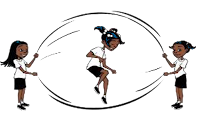There are numerous things that I come in contact with that support me whether it be family or things around the house that support me.
My study room supports me in helping me remember what my goals are for my life. Here in my study room I have a vision board that have different clippings or images and scriptures about the things that I want to do and the direction I want my life to go. It also has a calendar posted that have due dates listed everywhere to help keep me on track with my assignments and tests.
My grandma and godmom are a part of my emotional and financial supports. My grandmother makes sure that I am financially ok and that everything that I need is taken care of. My godmother is very emotionally supportive - she makes sure that she is always there for me whenever I may need her to listen or to just give me advice.
Church and prayer is a part of my spiritual support. I was brought up in a church going family so therefore I do believe in God and everything about Him. When I attend church on Sundays I feel so much better about starting the upcoming week I also feel 100% refreshed and relaxed. Whenever I run into trouble that my god mom or grandmother cannot fix I always turn to God and prayer and He will see me through whatever the situation may be.
My supports are a big deal to me and I absolutely wouldn't know what to do if they were gone. The benefits of my supports are that they help keep me sane and not to stress out about things that are not of major importance. It would be very difficult for me to go on in life without my grandma and godmother but I am sure that I would learn how to cope and to go on in life without them because that is what they would want me to do. I definitely couldn't go on without my God- that's just silliness.






